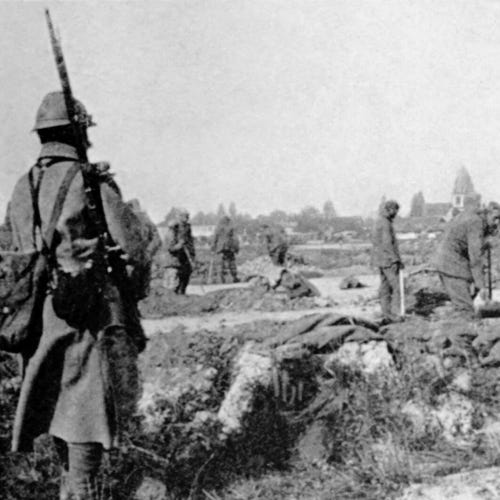From the trenches of the First World War, a poet wrote these words:
If in some smoldering dreams …
If you could hear …
My friend, you would not tell with such high zest
To children ardent for some desperate glory,
The old Lie: Dulce et decorum est
Pro patria mori.
From “Dulce et Decorum,” Wilfrid Owen
The entire poem is a glimpse into the horror of war, men dying in agony and their destroyed bodies carted away for burial, seen through a soldier-poet’s eyes. To read it is to feel a little of that war that shaped and destroyed a generation.
The last line of the poem is a quote from the Latin poet Horace: sweet and fitting is it to die for one’s country. To a man in the living hell of the trenches, it is no wonder that those words became a mockery, and whatever cause raised was no longer worth the blood shed for it.
So many things could be said about this poem or in response to it. And while it is not entirely fair to compare the words of a man who died before the war ended with others who had the chance to know hope and life again, still, there is a chasm between the despair of “Dulce et Decorum” and the words of other soldier-poets, in this case C. S. Lewis and J. R. R. Tolkien.
Both men are more readily with the Second World War, and sometimes we forget that they too survived the infamously called '“war to end all wars.” Neither could be accused of suffering less in that war than Owen or any other soldier; Lewis lost his closest friend at the time, and Tolkien survived his own horrors.
Yet to read “… [a] noble death is a treasure which no one is too poor to buy” in The Last Battle or “I do not love the bright sword for its sharpness, nor the arrow for its swiftness, nor the warrior for his glory. I love only that which they defend” in The Two Towers, is to see a worldview entirely different than Owen's. The horror and suffering were not less for one than the other; Lewis and Tolkien never denied the reality of war. Yet these men found something beyond the shadow.
For Owen, throughout his poetry, there is nothing beyond the shadow. Perhaps for a man in the midst of it, that is no more than can be expected. But, for those who believe in Christ, like Lewis and Tolkien famously did, we believe in a Lord Who entered into the horror and suffering of death, descended into Hell, according to the ancient Apostle’s Creed, and rose again.
He is the Light in the shadow. He is the Light beyond the shadow.
Then spake Jesus again unto them, saying, I am the light of the world: he that followeth me shall not walk in darkness, but shall have the light of life.
John 8:12
Blessings,
Emma


